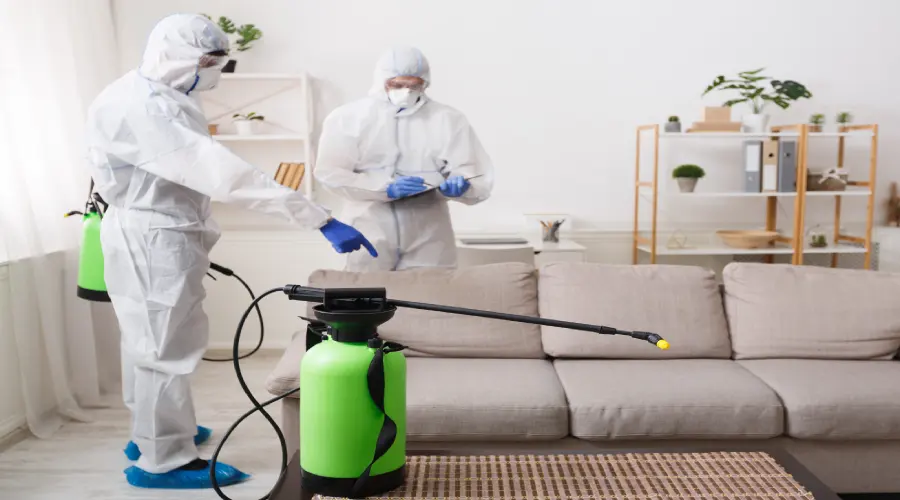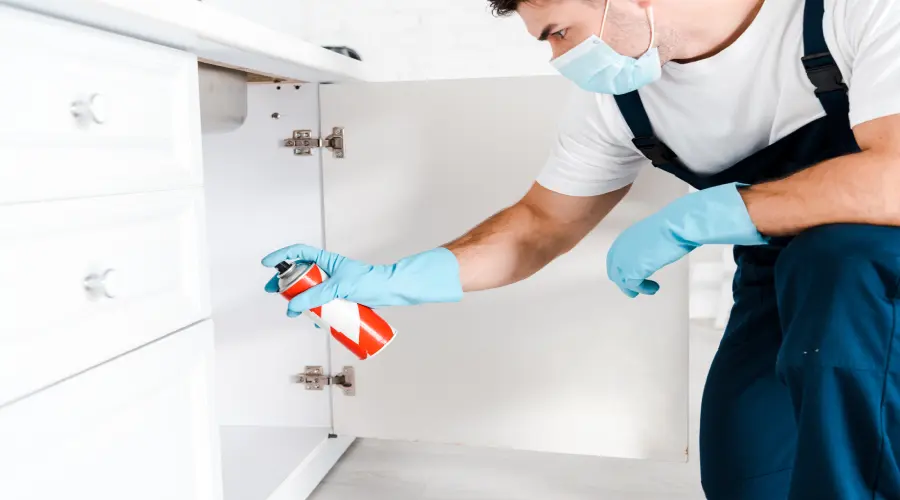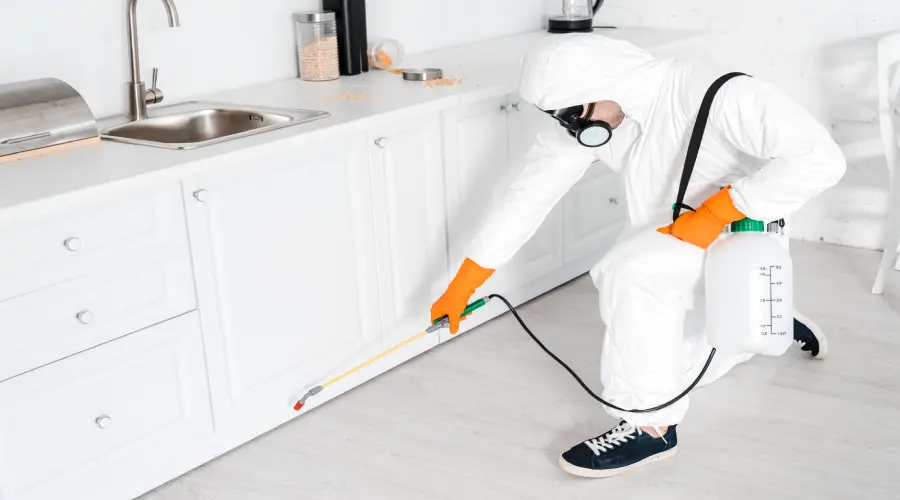Organisms that pose a threat to human beings or to their interests are known as pests. These include animals or plants that transmit disease, create diseases, or damage structures or crops. What constitutes the term "pest" is subjective. Some of the vermin eliminated from the pest control industry are rodents, cockroaches and termites toxic spiders, and many others.
Pest control is an intricate ecological process that requires both chemical and physical processes. It is about preventing the entering, settling, and spreading of pests within a region. Implementing a
Pest Control Service inside your building can stop the growth of pests. Pest control is the removal or reduction of insects. This includes rats, mice Flies, cockroaches, and many other insects. For a long time, the term "pests" has made people feel so worried. When pests are in the area it's normal for them to cause serious health problems. Additionally, the property can suffer can be damage as well, as pests are a problem in buildings or the surroundings. There are various types of pests. The methods for eliminating them will depend on the kind of animal we're working with.
Pest Control Methods
Are you bitten by insects? Do you suffer from cockroaches or rodents? Do you find your home constantly appealing to insects? Understanding the various types of pest control techniques is important to restore the health of your house. Following the process of extermination, the pest control firm will offer a range of strategies to ensure your home is clean and free of insects. What are these strategies we're discussing? There are a variety of pest control methods that operate in various ways, based on the type of infestation you're facing.
Biological Pest Control
Biological pest control utilizes living organisms in order to rid of pests that are common. and for helping, you can get Pest Controls Services in Los Angeles and hire a specialist then Your pest control specialist will make use of the natural predators of your pests. Biological methods for pest control are popular with exterminators due to their organic and extremely efficient. This method works by placing chemicals like bacteria that kill insects (e.g. mosquitoes) in water sources and remaining safe for human consumption to drink. The objective of biological control of pests is to accomplish the goal of eliminating harmful species without impacting the other aspects of the natural world.
Mechanical Pest Control
Methods for controlling pests using mechanical means comprise machines, devices and equipment for eliminating dangerous or hazardous pests. Mechanical methods utilize barriers and traps to keep insects at bay. The experts recommend that you invest in a pest control spray and then apply it on your foundation's home. This will keep pests out. They'll be forced to find a new area to invade. . The best way to safeguard your properties from these pests is to remove anything that could encourage the spread of the insects.

Chemical Pest Control
If you are dealing with an insect problem chemical pest control could be a viable option to get rid of the pests. Chemical methods of pest control are considered to be reliable and can eliminate a significant proportion of the pest population. Pesticides are typically used when other methods are not effective. There are some risks when pesticides are used particular in the case of pests on the fruits and vegetables of your garden, or in the process of fumigation tenting. The use of poison baits is usually together with other physical methods for controlling pests, like traps. A variety of poisons utilized in pest control are available in the form of gels or pellets. The intention is for the poisons to be consumed by pests and anything that isn't consumed is taken back to the nest in order to eliminate the population from the source. Fumigation is a preferred chemical choice when treating termites. It uses poisonous gas to stop and kill pests swiftly. Rodenticides can be deadly kind of pesticides. They are extremely powerful and are employed for the treatment of rodents. They must have the attention of a licensed pest expert. Liquid insecticides are a popular chemical pest control method in cases where natural control of pests is not possible.
Physical Pest Control
The use of poisoned baits is an effective method of getting rid of rodents and insects alike however, it could expose other animals and pets in danger. Both biological and physical types for pest management are safer for the ecosystem. Physical pest control entails the trapping, killing, or removal of pests in order to eliminate them from the surrounding. It could also include the installation of physical barriers and "pest-proofing" your places to deter pests from re-entering or coming back at all. Utilizing barriers to prevent access to areas on your property where you do not require pests is an alternative physical solution to control pests that is less damaging. The most common examples that physical methods of pest management comprise eliminating or destroying nests and blocking doors, holes, or windows as well as temperature control methods to kill pests or setting traps to trap insects and eliminate them from the space.

Field Burning
Field burning is an old method to control insects' spread. This method is where fields are completely burned following harvest. After harvesting the entire field is destroyed to eliminate any pests, including eggs that could be left. This method of controlling pests will ensure that your garden is cleaned to the bottom. It also removes all eggs that are a pest from the field, so there's zero chance of harmful pests growing, multiplying, and causing damage. This kind of pest control management is extremely effective as it eradicates pests completely.
Integrated Pest Management
The integrated pest management process is a process for managing pests that combines various physical, chemical and chemical methods to minimize the impact of pests as well as potentially harmful solutions. . People who are using the IPM approach understand the significance of control mechanisms offered by nature. If human intervention is required it is recommended that the least-invasive methods like biocontrol, resistance to plants and cultural control must be employed since these are the methods that work most easily in a sustainable agricultural system. Many people aren't at ease with the harsh consequences of pest management. The aim is the integrated management of pests is to reduce the risks associated with it. Natural enemies should be monitored in order that the impact of pests can be assessed. When pesticides are needed in the event of a need, the products do not harm natural enemies. This involves the controlled use of pesticides. This is why it is regarded as among the top ways to integrate pest control and management.

